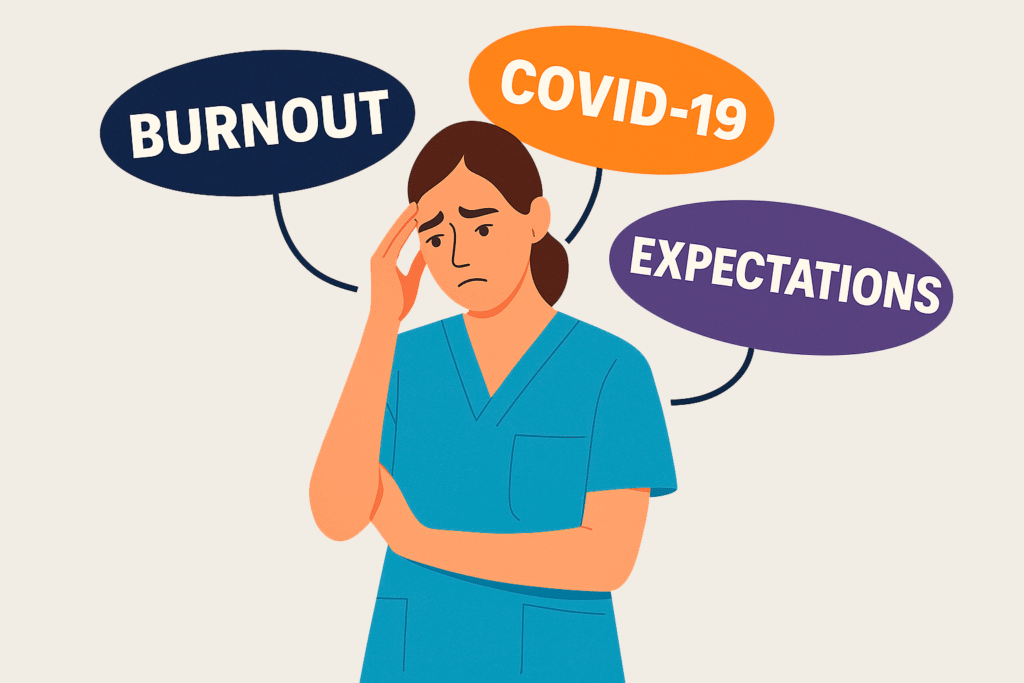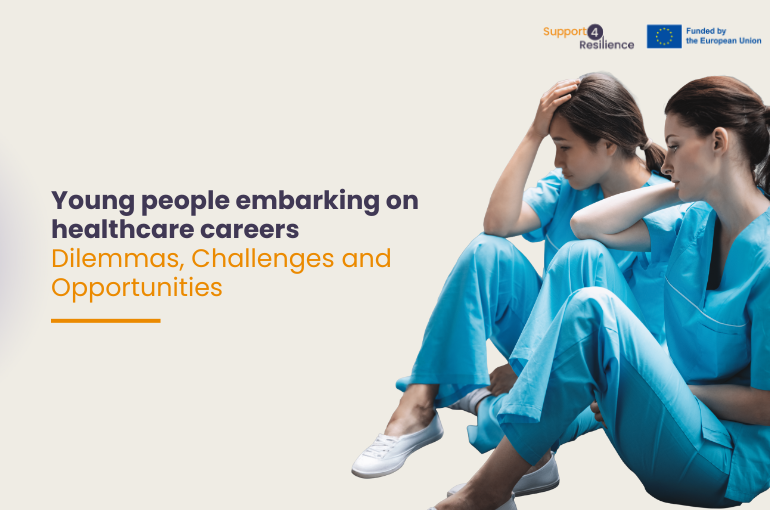Young people looking for jobs in healthcare is a prospect that many of us very much look forward to, from hospital managers and retiring staff to university lecturers and clinical instructors to patients and their relatives. But this is also something that the above have recently started being somewhat concerned about.
Careers in healthcare often attract individuals with altruistic traits, such as compassion and a strong desire to care for others. The recruitment of future professionals with high moral standards and strong ethical character is essential across all sectors of healthcare, as these qualities are known to directly impact both quality of care and patient outcomes. Despite the inherently noble nature of healthcare professions, there has been a noticeable decline in the number of applicants to healthcare degree programs across European countries in recent years. This trend suggests that careers such as nursing, healthcare assistance, and social work are becoming less attractive to young people and adolescents. Notably, the field of medicine—particularly the ambition of becoming a medical doctor—appears to be an exception to this pattern.

The decline in healthcare vocations among youth
Nursing continues to be perceived as a stressful and financially undervalued job, and the post-COVID-19 pandemic situation seems to have heightened this perspective. A recent OECD policy brief pointed out that notable changes have been noted, across countries, in students’ interest in embarking on a nursing career between right before the pandemic and its end in 2022. Interestingly, this shift does not seem to be related with the severity of the pandemic as shown either in terms of reported COVID-19 death rates or reported COVID-19 infection rates. What may contribute to this trend is yet to be studied, but what may be worrying is that this declining interest only adds to the existing problems in healthcare systems, mainly the high rates of burnout and quitting.
Why Gen Z nurses are burning out differently
Research suggests that young (i.e., 18–35 year-olds) nurses’ sources of burnout may be different from what older nurses report. While older nurses seem to have viewed the pandemic as one of the key sources of burnout, younger nurses may perceive as their sources of stress issues that are rather long-standing (e.g., personality-related vulnerabilities) than transient (e.g., COVID-19 pandemic). Related to this, a new study published by the Nuffield Trust indicates that there is a widening gap between the levels of satisfaction reported by youngest versus the oldest staff in UK’s National Health System, which may be understood by some as a ‘ticking bomb’.
Expectations vs Reality
The fact that nowadays many young nurses across healthcare services declare that they often feel miserable and helpless at work may be indicative of multiple-level factors (i.e., individual, organizational and contextual) operating together yet poorly understood. It may be that the younger generation (not only in healthcare, but across professions) often start their careers with mismatched expectations in relation to what the actual job entails. It may also be that managers do not know how to provide them with the most suitable training opportunities that would offer an optimal transition from the education to the professional environment. Regardless of all this, it is still difficult to anticipate how young workers will manage to cope in the long run within structures that are proved to elicit overwhelming amounts of negative emotions and few opportunities for self-taught regulation strategies (something that young people may look out for by default using online resources primarily). This is surely something to watch out for by their clinical supervisors and healthcare leaders.
Tech-savvy workforce
On the other hand, rapid technological advancements in biosciences and healthcare means that the youngest staff have the greatest potential to quickly integrate and become competent and versatile in using the newest technologies in a field that has traditionally and almost exclusively relied on human-to-human contact. Whether this progress will alter the nature of the relationship between healthcare staff and their patients and, if yes, in what way remains to be studied. Anyway, new and unprecedented challenges are likely to emerge with the integration of new technology and, possibly most importantly, artificial intelligence in healthcare routines.
Leadership and mentorship
Probably one of the key strategies that healthcare systems need to focus on NOW is what can their leaders do in terms of preparing and helping young professionals cope with the many changes and challenges that are expected ahead. This mission may mean that leaders need to reflect for a little bit on their roles and capabilities first and realize whether they themselves need to spend some time preparing for how to build up meaningful interactions and high-impact mentoring sessions with their youngest colleagues in a soon-to-become highly technologized environment. It will be mainly up to the leaders to navigate this complex interplay of intense emotions, human contact finesses, high client demands, super-technological input and reasoning and decision-making processes and provide the young professionals with their best mentoring experience ever.
Written by: Florin Tibu, from Universitatea Stefan Cel Mare Din Suceava
References
Rubbi, I., Lupo, R., Lezzi, A., Cremonini, V., Carvello, M., Caricato, M., Conte, L., Antonazzo, M., Caldararo, C., Botti, S., Andretta, V., Lattarulo, P., & Vitale, E. (2023). The Social and Professional Image of the Nurse: Results of an Online Snowball Sampling Survey among the General Population in the Post-Pandemic Period. Nursing Reports, 13(3), https://doi.org/10.3390/nursrep13030109 1291–1303.
OECD (2024). Fewer young people want to become nurses in half of OECD countries. https://www.oecd.org/en/publications/fewer-youngpeople-want-to-become-nurses-in-half-of-oecdcountries_e6612040-en.html
O’Hara C, Reid M. The under 35 nursing workforce in 2022: overworked, under supported, and burned out. J Nurs Regul. 2024;15(1):45–55. https://doi.org/10.1016/S2155-8256(24)00028-0
Nuffield Trust. New study shows widening gulf in job satisfaction between the NHS’s youngest and oldest staff. 20 Feb 2025. https://www.nuffieldtrust.org.uk/news-item/new-study-showswidening-gulf-in-job-satisfaction-between-the-nhs-s-youngest-and-oldest-staff

